How to Fix Xbox One Error Code E305
Some Xbox One users are encountering the System Error E305 whenever they attempt to boot up the console. Some affected console owners are reporting that this problem is intermittent while others say it’s occurring at every startup.
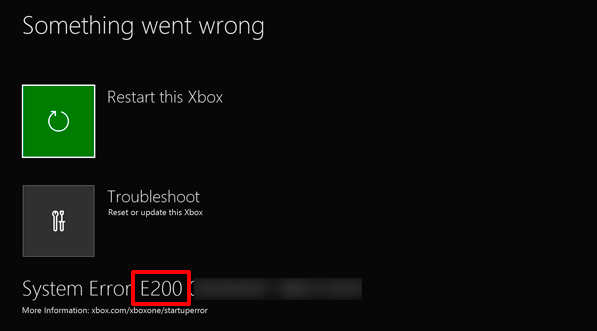
After investigating this particular issue, it turns out that there are several different causes that might trigger this startup error on Xbox One:
- Corrupted temporary file – This type of issue can also be caused by a temp file inconsistency. In this case, you should be able to fix this problem by power cycling your console and drain the power capacitors.
- Corrupted OS files – If you can’t get past the initial boot screen, chances are your Xbox One is dealing with some kind of corruption associated with your OS files. In this case, a console reset should fix the vast majority of OS-related inconsistency.
- A discrepancy between OS version and recovery OS version – Some users have confirmed that this problem occurred because their HDD/SSD stored OS version is newer than the one stored on the recovery drive. In this case, updating the firmware to the latest manually should allow you to fix the issue.
- Hardware issue – If none of the fixes featured below work, you are most likely suffering from a hardware issue that is beyond your control. The only thing you can do at this point is to send your console in for repairs.
Method 1: Power-cycling your Console
One of the most common fixes that are known to fix the system error e305 is to power cycle the console and allow it to boot without any leftover data left behind by a previous startup.
This operation will end up clearing the majority of issues that are caused by firmware issues or temp file inconsistencies. What this does is it removes every file that’s currently stored in the temp folder of the console.
If you haven’t tried this yet, follow the instructions below to perform a power cycle procedure on Xbox One:
- Ensure that your console is fully turned on (not in hibernation mode).
- Next, press and hold the Xbox button on your console – Keep it pressed for about 10 seconds, or until you see the front LED stop flashing.

Pressing the power button on Xbox One - After your console is fully turned off, wait for a full minute before attempting to turn it back on. It’s recommended that you also physically disconnect the power cable from the power outlet to ensure that the power capacitor is completely cleared.
Note: After you disconnect the power cable, wait for a full minute before plugging it back in. - Connect the power cable once again and start your console conventionally to see if the system error e305 is fixed.
If the same problem is still occurring, move down to the next potential fix below.
Method 2: Resetting your Console
If a simple power cycling procedure didn’t fix the issue in your case, the next thing you should do is to go for a console reset. However, since you are most likely not able to get bast the initial boot-up screen, you’ll need to do it from the Xbox Startup Troubleshooter menu.
Several affected users have confirmed that by doing this reset procedure and wiping every firmware file they managed to allow their Xbox One console to boot up without the 305 error code.
If you want to go this route, follow the instructions below to reset your console to their factory defaults:
- First things first, power off your console completely, then unplug the power cord to ensure that the power capacitors are completely drained.
- Wait for a full minute before plugging the power cord back in.
- Press and hold the Pair + the Eject button on your console at the same time, then short press the Xbox button.
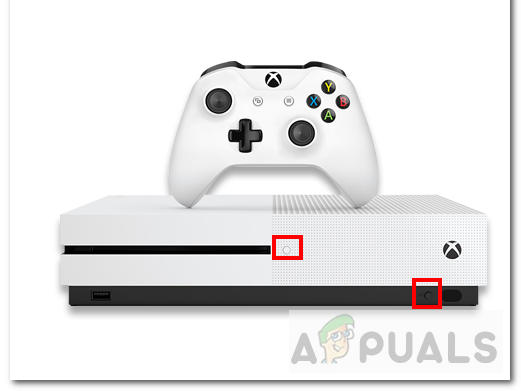
Eject and Pair Button Note: If you have the Xbox One S All-Digital edition, you’ll obviously not going to have the Eject button. In this case, you only need to press and hold the Pair button, then short press the Xbox button.
- Continue holding the Pair and Eject button for 10 to 15 seconds until you hear the 2 power-up tones (a couple of seconds apart). Once you hear the two tones, you can release the pair and eject buttons.
- Next, your console should restart itself directly in the Xbox Startup Troubleshooter.
- From the Xbox Startup Troubleshooter menu, access the Reset this Xbox entry and confirm the operation to get it started.
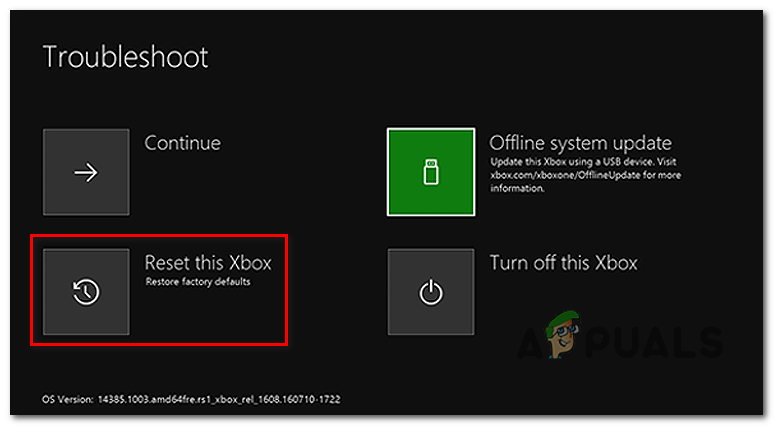
Reset this Xbox from the Xbox Startup Troubleshooter - Next, you’ll have the option to remove everything or opt to Keep games and apps. The recommended procedure is to go for the full reset.
- Wait until the operation to complete, then initiate a conventional boot-up and see if the same problem is still occurring.
Method 3: Performing an Offline Update
If none of the methods above have helped you resolve the 305 system error code, you should start considering an issue that’s affecting the onboard console flash – This usually occurs when the OS version stored on your HDD or SSD drive is newer than the recovery flash drive.
If this scenario is applicable, you should be able to fix this problem by visiting the Xbox Support website and download the newest OSU1 files, then use them to reformat your hard drive.
However, in order to be able to do this, you need to put the new $SystemUpdate folder on your recovery flash drive so that the console OS can boot from it instead. As soon as you do this, you should be able to perform an offline system update and should fix the issue.
Here is some step by step instructions on how to perform an offline update:
- First things first, you need to prepare the flash drive for the operation that you’re about to do. Insert the USB drive (with a capacity of at least 7 GB) in a PC and ensure that’s formatted to NTFS.
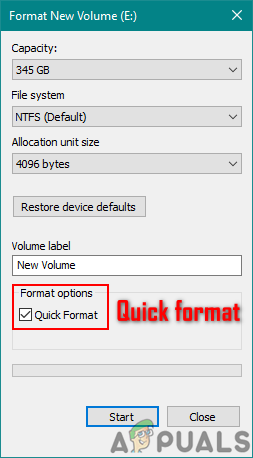
Using the quick format Note: To format it to NTFS, right-click on your flash drive and choose Format… from the newly appeared context menu. Next, set the File System as NTFS, then check the box associated with Quick Format before clicking on Start.
- Once you have correctly configured your flash drive, visit the Xbox Support website and download the latest version of the Xbox One console’s OS.
- Wait until the download is complete, then use a qualified utility to extract the contents of the archive on the flash drive that you previously prepared.
IMPORTANT: Ensure that you paste the OS files inside the $SystemUpdate folder (in the root folder of the flash drive) - Safely remove the flash drive from your PC and plug it into your console after ensuring that is powered off.
- Next, press and hold the Bind and Eject button at the same time, then short press the Xbox button on the console.
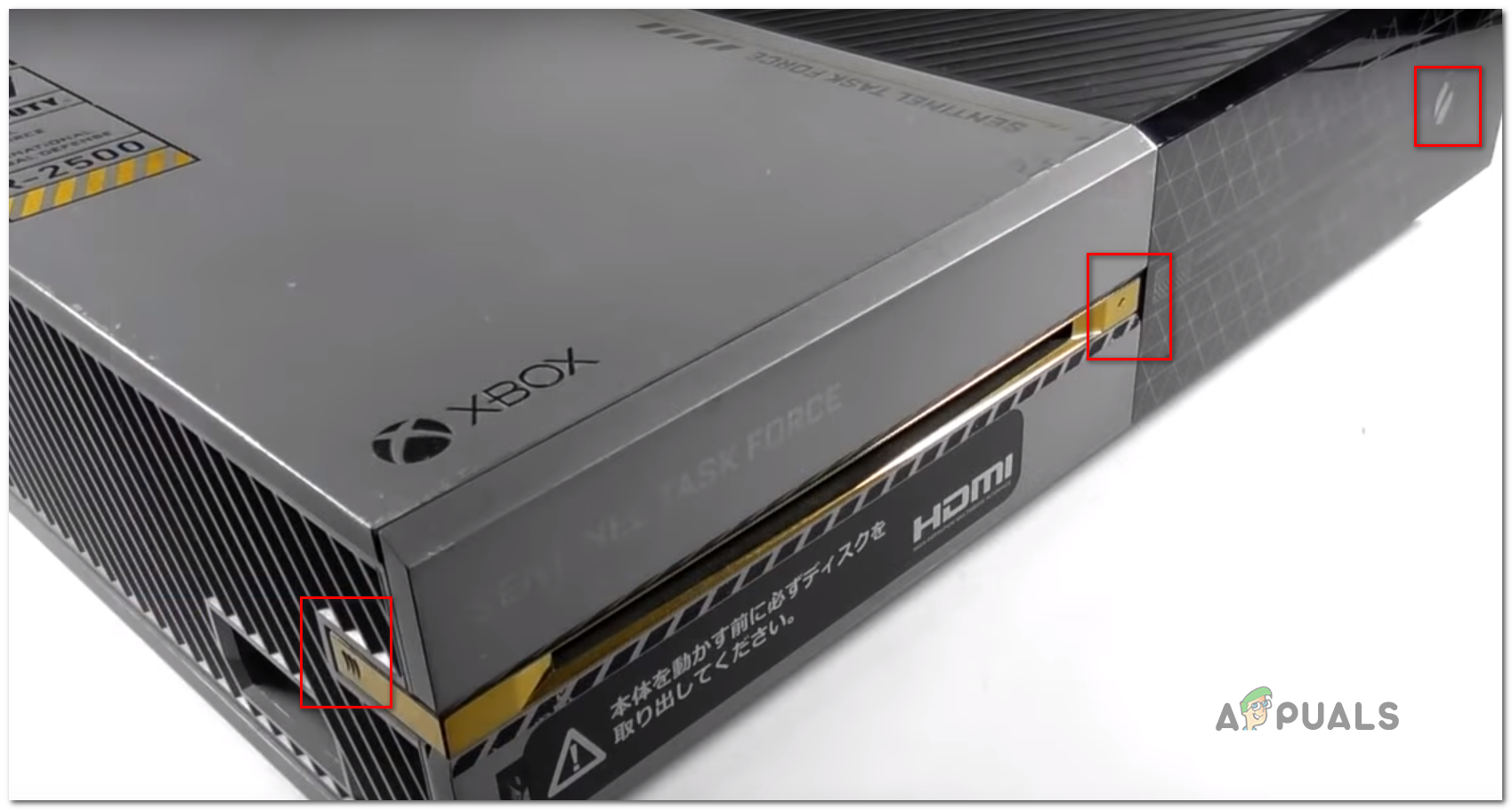
Opening the Xbox One Startup troubleshooter - Next, listen for the 2 power-up tones, and when you finally hear the second one, release the Bind and Eject buttons. After you do this, your console will enter the Xbox One Startup Troubleshooter.
- Once the menu Troubleshoot menu finally comes up, select the Offline system update menu, and press X to access it.

Accessing the Offline System Update option - Wait until the operation is complete – Depending on the read & writes speed of your flash disk, this might take over 30 minutes.
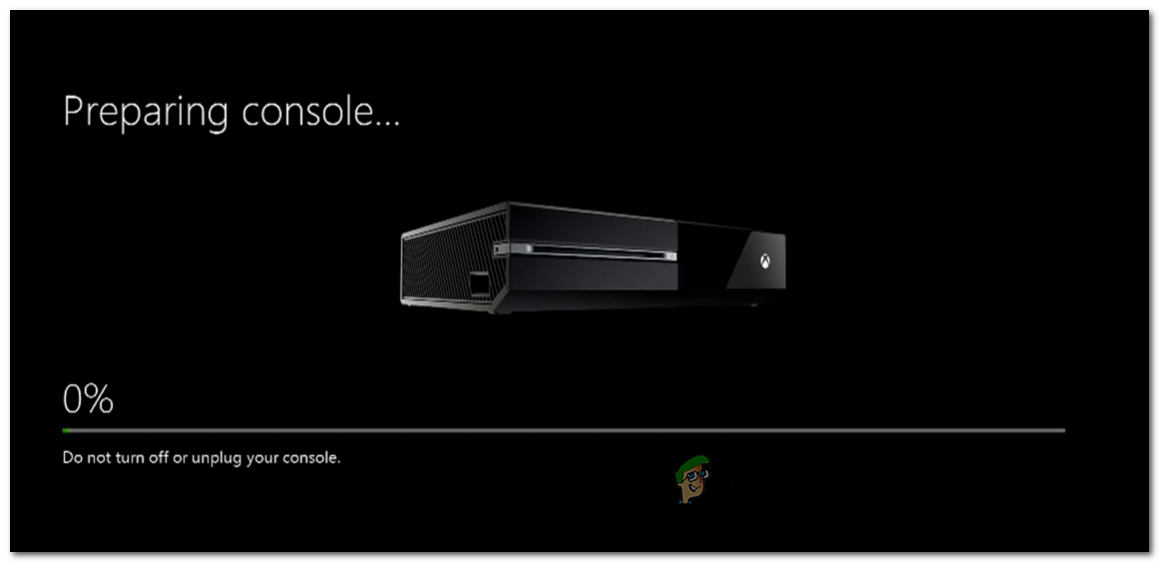
Installing the latest OS version of Xbox One manually - Once the operation is complete, your console will restart automatically and boot conventionally
Method 4: Submitting a Repair Request
If none of the methods above have allowed you to fix the issue, you might need to start considering the fact that you might be dealing with a hardware issue.
In this case, the only thing you can do is turn your console in for repairs (if you’re still under warranty) or you can submit a repair request.





